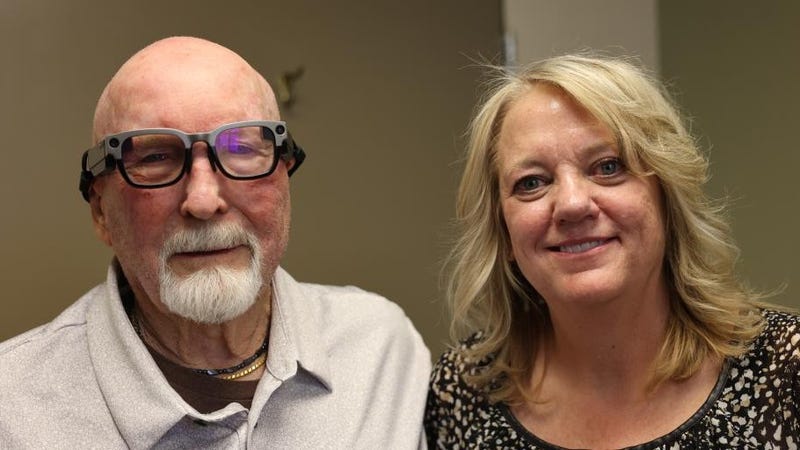
Thanks to recent advances in hearing technology, Korean War Navy veteran Walter Crites is excited to have engaging conversations again.
About 25 years ago, Crites, a 91-year-old patient at Northern Arizona VA Health Care System (NAVAHCS), lost almost all his hearing after complications from multiple surgeries.
He subsequently received a cochlear implant, but it failed after about 15 years and could not be replaced due to various health concerns.
For the past decade, having any form of conversation was a real challenge for him.
“I had to carry a steno pad and plenty of pens just to communicate,” Crites said. “My wife has been tested to the extreme.”
He eventually upgraded to speech-to-text on his phone to understand what people were telling him, but it still wasn’t ideal.
“The problem with that is you’re constantly looking at your phone, so you’re not as engaged in a conversation,” said Dr. Darla Gilder, Crites’s audiologist at NAVAHCS.
In early 2024, Crites heard about caption glasses and started asking if such devices were available through VA.
Gilder had been reading about the new technology as well, so she quickly connected with Crites to work on getting him a pair.
The technology was so new, however, that VA was still trialing the product. It took almost a year, but Crites became the first veteran at NAVAHCS to receive caption glasses in April 2025.
“It’s going to make life a whole lot simpler,” Crites said when he first received them. “It’s funny, I’m getting glasses from the hearing department.”
Made by a small startup company called Xander, the glasses use augmented reality to display real-time captions right in the field of view of the wearer.
“It’s amazing how fast and accurate the captioning is,” Gilder said.
While the average consumer would need to pay about $5,000 for this high-tech convenience, Crites and his fellow veterans enrolled in VA health care pay nothing.
“All devices through the VA that assist with hearing loss are free for the veterans,” Gilder said.
To be eligible for caption glasses, veterans need to have a severe hearing disability or handicap that can’t be properly assisted by other available options, such as hearing aids or cochlear implants.
Crites may have eventually discovered caption glasses through other means, but he credits his proactive approach to improving his health and well-being for acquiring them as soon as he did.
“You have to take the initiative for your health,” he said.
